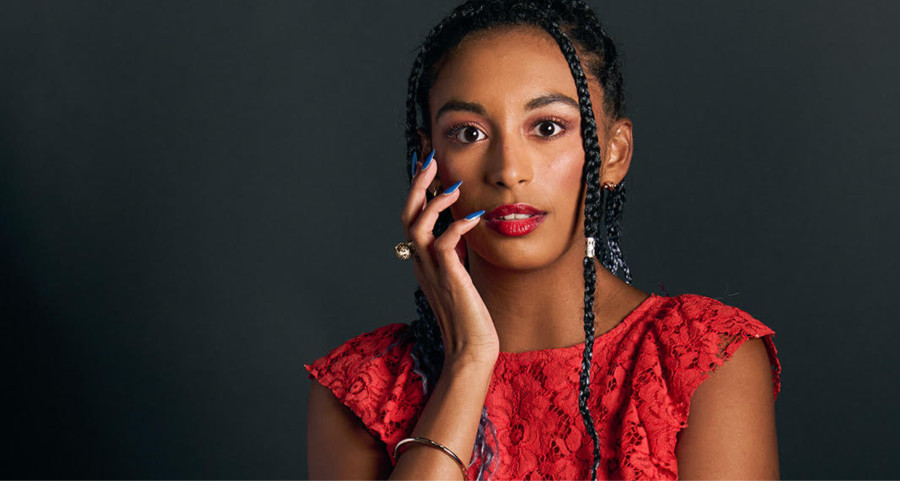I was recently invited to the Women’s College Hospital Foundation’s Black Women's Health Summit and reminded that healthcare is often where empathy and proper care for Black women is lacking.
I had to advocate for myself in the healthcare space for the first time a few months ago and felt at my wits end with the lack of compassion, answers and care provided to me and resonated with a lot of the findings shared by Women’s College Hospital’s panel.
For the majority of my sexually active life, I have experienced some amount of spotting or bleeding. I should confess that a lot of my sexual experiences up until the past year had not been overly positive. I truly believed that the spotting was caused by a lack of arousal, roughness or other factors but never felt it necessary to bring up to a doctor. As women, we are often taught that any sexual discomfort is our own fault. I felt a lot of shame around my lack of sexual enjoyment and blamed myself for that as well as any bloodshed, I refused to acknowledge it by verbalizing it to a medical professional. I also didn’t believe anything could be done – that my body was just this way.
After several years of having no sexual partners, in September 2022 I finally re-entered the dating game. Little did I know that my body had changed drastically in those few years, making this new sexual experience a horrific one. Though it would take 4 months to get a diagnosis, I had developed a condition called cervical erosion resulting in the growth of blood vessels on the outside of my uterine lining. As my partner at the time and I turned the lights on after this first sexual encounter together we were surrounded by an obscene and horrific amount of blood. As I was experiencing no physical pain I told myself I must not be dying, cleaned up the mess, and in the morning seemed to be completely back to normal.
As I had been on the waitlist for a family doctor in Ontario for 5 years, I knew I would have to embarrassingly go to a walk-in clinic to hopefully find answers. As this sexual encounter was not a regular experience, I didn’t make it an immediate priority but did go to a walk-in clinic about a month later. I was treated by a white female doctor who conducted a pap smear and said I had a friable, sensitive cervix, noting quite a bit of blood on the speculum, but she would run tests for any sexually transmitted infections and see if there were any issues. I was told the blood work results would be quite quick but due to our healthcare system, a pap smear could take a few months to have results.
A few weeks later I was told I had no sexually transmitted infections by a receptionist over the phone, and that there appeared to be no issues. I replied by asking if I was expected to bleed this much after every sexual encounter as if this was normal. I was then told I could come back and speak with a different walk-in doctor, who was on duty today, to try to get answers. I went back and re-explained to another white female doctor what I had experienced in my life, on that September evening, and how I refused to believe this was normal despite the tests showing no issues. She finally referred me to a specialist who would only be able to see me two months later. During those two months, I continued to experience spotting and bleeding and was finally called and told my pap smear showed irregular cells. I would require a camera to be inserted into my vagina when I finally got to see the specialist.
In January 2023, I finally got to see a specialist. A Black male gynecologist was finally able to give me a diagnosis in under five minutes. He explained that cervical erosion was the culprit. High levels of estrogen from birth control, weight or pregnancy can cause cervical erosion which can be treated by cauterization which I underwent. While having answers certainly brought me relief and I did feel having a Black person as a healthcare provider helped me be seen, I still was left with answers that I feel a Black female doctor could have been more compassionate about.
If cervical erosion is caused by increased estrogen due to birth control, why was my doctor not offering me other solutions, asking about my sexual history so that this could be prevented in the future? Instead, I was told to prepare mentally to be cauterized again in five years' time. It was not explained to me how potential future pregnancies could impact a re-erosion and when I asked questions I was given vague answers.
It is with this very recent lived experience that I attended the Black Women’s Health Summit knowing why advocating for yourself as a Black woman in these spaces is so important – but I also knew I was lucky as my condition was non-life threatening.
Panellists at the summit shared statistics about death due to childbirth complications. In the United Kingdom, 34 out of 100,000 Black women died in comparison to only 8 white women. Even once the baby is born, Black infant mortality rates are higher. 653 out of 100,000 babies born to the poorest Black mothers died, and 437 born to the wealthiest Black mothers also died in comparison to only 350 of babies born to the poorest white mothers – meaning even the wealthiest Black women still lose their children more frequently than the poorest white mothers.
Money and status are not the issue, race is. Dr. Modupe Tunde-Byass told listeners that these statistics highlight that Black families are disproportionately affected despite their income or socio-economic status and that while Black women are unfairly treated in healthcare, so are their offspring.
Several other key takeaways from the summit touched on the continued belief that Black people and Black women are aggrandizing the pain that they feel and are more often not given proper pain relief. Black women are often not considered in medical research and testing so the medical responses are not as effective for us, and a general lack of compassion for Black people and women in the healthcare sector due to systemic racism and a lack of humanizing of Black people. Upon hearing these facts, I immediately was able to pinpoint these realities to my experience earlier this year.
The speed with which a Black doctor was able to diagnose me as opposed to the white women who had seen me previously felt like systemic if not blatant, racism. It felt as though because I was not in pain, the blood I was seeing was not alarming to the women treating me and that lack of compassion was shocking from two people with presumably a similar biological makeup as I. Rather it was the person with a similar level of melanin that was able to provide me answers, at least some amount of compassion.
That has taught me the value of finding Black doctors who can fully understand what I am going through as a patient.

 By
By 


